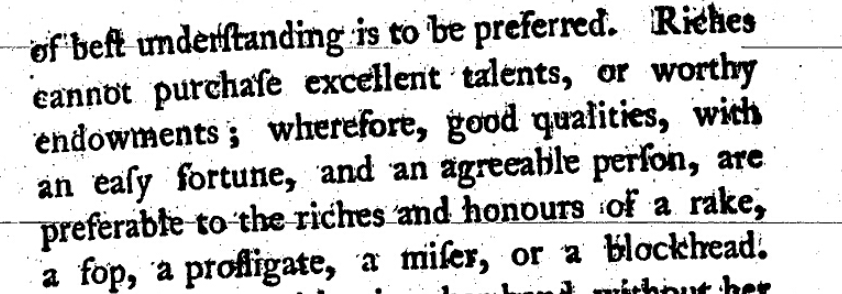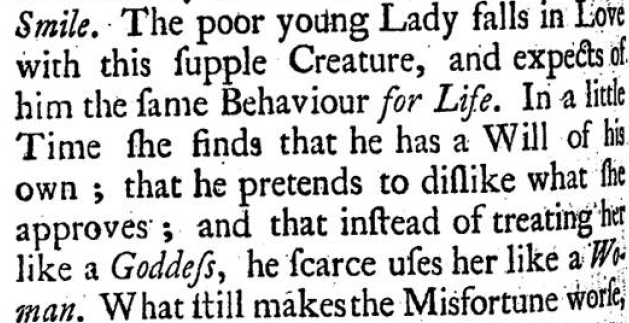‘Cracking on’ in the Eighteenth Century: Conduct Books and Courtship
Love it or hate it, Love Island fever has undeniably swept through the nation for yet another summer and with the infamous dating reality show now gearing up to the final next week it seems appropriate to take a moment to step back in time and see how our eighteenth century predecessors went about ‘cracking on’.
Delving into Adam Matthew’s Defining Gender resource, Professor Vivien Jones’ essay on ‘Conduct and Politeness in the Eighteenth Century’ reveals the predominance of conduct books at the time, containing advice and warnings relating to courtship.
Jones tracks this rise in popularity as following on from when ‘the lapse of the Licensing Act finally put an end to the Stationers’ Company’s control over publication’ allowing ‘for an explosion in print culture: unregulated booksellers identified the growing numbers of both women and men able to read as a powerful potential market; and books became one of the most popular commodities in a period of rapid commercial expansion’.
These commercial changes coincided with a feeling of eagerness amongst the emerging middling class for ‘instructional literature’, both on practical and financial concerns and, as this blog will focus on, ‘how to behave in private life’, with an emphasis often placed on how to approach matters of courtship and marriage.
Just as Love Island hopefuls seek to avoid getting ‘mugged off’ by their fellow contestants in their search for love (or the £50,000 prize money), those searching for love in the eighteenth century appeared to share similar concerns, with conduct books like 'A letter of Genteel and Moral Advice to a Young Lady' (1740-1766), offering up words of wisdom to young ladies on how to avoid such a scenario:

The author goes on to add a note about how to behave in a ladylike manner when dealing with a ‘troublesome’ partner:

Speaking on marriage, the author goes on to detail the characteristics most desirable in a potential match, arguing that 'the chief things to be regarded in the choice of a husband are a virtuous disposition, a good understanding, an even temper, an easy fortune, and an agreeable person.'
However, perhaps somewhat surprisingly, the author goes on to suggest that money was not necessarily the only key to a good match…

Conduct books were not only addressed at women however, and the conduct book 'The Gentleman's Library: Containing Rules for Conduct in all Parts of Life, written by a Gentleman' (1744) could provide some useful food for thought for some of this year’s male Love Island hopefuls…


Mugging off, betrayals and marriage proposals aside, this quote from a later conduct book dating from the nineteenth century illustrates that literature on courtship retained a lasting importance. The following musings on love demonstrate the timelessness of the sentiments conveyed through conduct books and are a testament to their continued relevance beyond their original conception.

For more information, including free trial access and price enquiries, please email us at info@amdigital.co.uk.
Recent posts

James Prinsep, the son of an East India Company merchant and government official, holds a notable place in Indian history for his work in the Indian Mint and standardising currency. Records from East India Company, module VII show how Prinsep, and the British-run East India Company more broadly, reshaped India’s currency to suit their economic and administrative needs.

Foreign Office, Consulate and Legation Files, China: 1830-1939 contains a huge variety of material touching on life in China through the eyes of the British representatives stationed there. Nick Jackson, Senior Editor at AM, looks at an example from this wealth of content, one diplomat’s exploration of Chinese family relationships and how this narrative presented them to a British audience.
